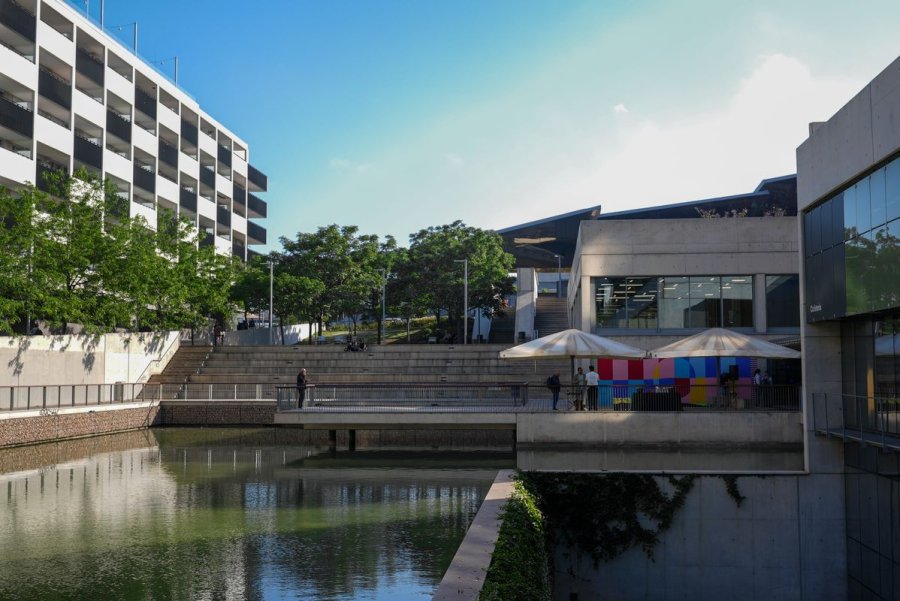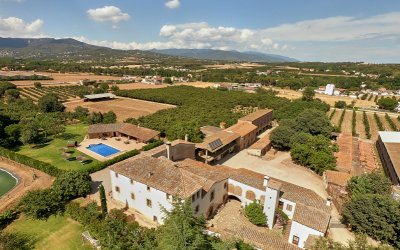The city cares for people
The climate crisis is an undeniable reality that affects all levels of society, but especially the most vulnerable. With global warming leading to an increase in the frequency and intensity of heat waves and cold spells, it becomes vital to have safe, comfortable places for people who are particularly affected by extreme temperatures due to their socio-economic situation, health issues, age or other circumstances.
In 2020, to address this need, Barcelona City Council launched the Climate Shelter Network, making 70 thermal-comfort spaces available to city residents. There are currently over 200 shelters available during the summer and over 130 in winter, distributed throughout the city. This ensures that 97% of Barcelona’s population is less than a ten-minute walk away from their nearest climate shelter.
But what does a place need in order to be considered as a climate shelter? In addition to providing protection against intense heat or cold —both of which are linked to increased mortality— while conserving their original use, these locations must be free of charge, accessible for people with reduced mobility, and safe, as well as having comfortable relaxation areas and free water.
Climate shelters can be indoors, including libraries, museums and civic centres, or outdoors, such as parks and gardens. They are especially aimed at people who are vulnerable to heat or cold, including babies and senior citizens, as well as low-income individuals or those suffering from chronic illnesses.
Museums against climate change
Climate shelters are not just a vital resource for the population’s health and well-being, they are also an opportunity for local institutions to show their commitment to city residents and society in general. In this regard, three Barcelona museums stand out: the CCCB, the MACBA and the Disseny Hub have embraced this initiative as part of their involvement with sustainable development, which they’ve also demonstrated by earning the Biosphere seal.
The CCCB (Barcelona Centre for Contemporary Culture) is promoting a new sustainable culture that takes into account the ongoing climate emergency. That’s why it takes part in various programmes that improve environmental quality, establishes annual measures to reduce its GHG emissions and makes a constant effort to integrate sustainability into all areas of its work, beyond the regulatory requirements.
Since 2017, MACBA (Barcelona Museum of Contemporary Art) has included sustainability as a priority in its work. Aware of its responsibilities, it seeks to provide a comprehensive, global response to the climate issue and it has implemented its own system of environmental management with a wide range of measures aimed at reducing negative impacts on its surrounding area. Initiatives that reflect its commitment include the renovation of technologies, the replacement of polluting elements with more efficient, local alternatives, and extending the useful life of materials by giving them new uses, either within the museum or by collaborating with other city organisations through exchanges.
Furthermore, with the aim of raising awareness, MACBA, like Disseny Hub Barcelona, offers several activities and programmes linked to the environment. A leader in the world of design, the museum stands out for its open, experimental approach to promoting creativity and innovation, as well as for being a sustainability role model.
Various awards reflect the Disseny Hub’s excellence in responsible, environmentally friendly management and its efforts to achieve the highest environmental quality. In particular, it is interesting to see how it incorporates this commitment as part of its artistic programme. For example, the museum introduced initiatives such as collecting and reusing most of the materials used in the Toquem Fusta! [Touch wood!] exhibition, some in subsequent exhibitions and others as a donation to neighbourhood organisations.
In short, the CCCB, the MACBA and the Disseny Hub Barcelona are renowned cultural sites that go above and beyond and have taken on a key role in promoting a more sustainable and resilient Barcelona in regard to the challenges of climate change. Their participation in the Climate Shelter Network, along with taking on commitments such as Biosphere, not only have immediate benefits for the community, but are also crucial in tackling one of the main future challenges facing cities, as well as helping to build a safe, healthy planet for everyone.










